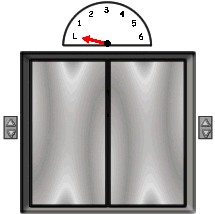





 |
|||||||||||||||
 |
 |
 |
|||||||||||||
|
|
|
|
|||||||||||||
|
|
|
|
|||||||||||||
|
|
|
||||||||||||||
 |
|
|
|||||||||||||
|
|
|
|
|||||||||||||
|
|
|||||||||||||||
|
|
|
 |
|||||||||||||
|
|
|
|
|||||||||||||
|
|
|
||||||||||||||
|
Week 1
(Page 2 of 3) |
|
|
|
|
| Library Lessons This Week |
Orientation Distance learning is often defined as taking place when the instructor and student are separated by physical distance. I like to add the twist that the student and instructor are separated by time as well as physical distance. Distance learning is very flexible! In some cases, such as this course, you have the opportunity to log on and participate in lessons at times that are most convenient to you. Please note: For this course, please upload ALL files to Elearning as Rich Text Format (RTF) rather than word docs. When you save an assignment in Word, you have the option of choosing "Save As" from the file menu. When you do that, you can select the "File Type" in the window that pops up. Please use the drop down menu under "File Type" to choose Rich Text Format (RTF) before you upload any files to Elearning. |
|
Lesson 1:
|
Ordering Your Texts One important thing for you to do if you have not done so is to order your texts for this course. The required texts for this course are:
Lesson Activities
|
|
|
|
|
Lesson 2:
|
Orientation to Investigative Strategies The purpose of this course is to prepare you to begin thinking critically about what you are learning as a student in Teacher Education, how we know what we teach is 'probably' accurate (with some room for error), and the premises and pitfalls behind ideas that are considered "best practices" in teacher education. It is my hope that you will see the vast body of knowledge that we have accumulated on the topic of teacher education is 1) ever increasing, 2) based on probabilities which have built in error, 3) applies to you as a professional in teacher education and related fields, and 4) important to understand and be familiar with as a professional who is a life long learning, critical thinker, and problem solver. Most of you are required to complete Research Practicum and Action Research for your degree plan. Together with Investigative Strategies, these 3 courses constitute the "research sequence" that most students in teacher education must complete for their degree. To this end, Investigative Strategies is designed to educate you in introductory educational research strategies, empiricism, and the applications of empiricism in teacher education. Lesson Activities
|
|
|
|
|
Lesson 3:
|
Library Online Training One of the most important resources that can help you successfully complete the research series is the University library. The library provides basic orientations (an overview of the services that the library provides) and individual research consultations (to assist you in locating resources at the library). The library also provides online tutorials that you can access via the Internet at any time. You should review the list of tutorials on the library website to familiarize yourself with the range of resources that are available to you and the tutorials you will complete as part of this class. If you have questions about what resources are available, refer to the library website. You can obtain assistance by phone (refer to the Departments page) for phone numbers or via the Internet (using the Ask-A-Librarian link). Lesson Links
Lesson Activities Please upload ALL files to Elearning as Rich Text Format (RTF) rather than word docs.
|
|
|
|
|
Contact the Library Staff
|
Need Help? Have a question but can't find the answer? Here are some options:
*Remember to include the course name and your name in your message. |
| To Page 1 | |
| Course Syllabus |
Course Schedule |
John C. Pace Library |
Course Resources |
Student Papers |
Course Home Page |
Updated on January 3, 2010 |
© 2004 by Leasha Barry. All rights reserved. |